Text
Opción extrema: derrocar a Allende.
Esta fue la orden de #RichardNixon: Opción extrema: derrocar a Allende. #accesoainformación #accesstoinformation #FOIA #Freepress #Press #Prensa #PrensaLibre #NSA
Nixon: Hacer que la economía grite; orden emitida hace 50 años Génesis de la infame directiva de cambio de régimen de Nixon en Chile registrada en documentación desclasificada
Washington, D.C., September 15, 2020 – On September 15, 1970, during a twenty-minute meeting in the Oval Office between 3:25 pm and 3:45 pm, President Richard Nixon ordered the CIA to foment a military coup in Chile.…
View On WordPress
0 notes
Text
Noticias
La Directora General UNESCO pide una investigación urgente del asesinato del periodista Leobardo Vázquez en México Audrey Azoulay, Directora General de la UNESCO, condenó hoy el asesinato del reportero mexicano Leobardo Vázquez, perpetrado el 21 de marzo en la localidad de Gutiérrez Zamora, Estado de Veracruz.
“Condeno el asesinato de Leobardo Vázquez,” dijo la Directora General, “y…
View On WordPress
0 notes
Photo

El arte de difundir rumores Angel Alayón * Gabriela de Vásquez se resistía a creer lo que la voz en el teléfono le decía con tanta claridad: su esposo le era infiel desde hacía cinco meses con Julia, una atractiva compañera de trabajo.
0 notes
Photo

El periodismo de acceso... espero que lo lean, alumnos de #comunicación de #UNIC y #CUEG #comunication #prensa #prensalibre #freedompress #journalism Gustavo Gorriti saladeprensa.org Un colega con quien discrepo en casi todo menos en el hambre de lectura y el gusto por una buena discusión, me prestó el libro de Bob Woodward,
#acceso a la información#Article XIX#Freedom of Expression#journalism#Libertad de Expresión#periodistas#press
0 notes
Photo

Corte Suprema de Colombia protege la reserva de las fuentes. #Comunicación #comunication #prensa #prensalibre #freedompress #journalism #socialmedia #accesoainformación #libertaddeexpresión JUSTICIA [email protected] En un fallo de 41 páginas la Corte Suprema de Justicia de Colombia aclaró los alcances de la libertad de prensa y la protección de las fuentes de información.
#acceso a la información#Archivos#Article XIX#Colombia#Freedom of Expression#Libertad de Expresión#periodismo de investigación#periodistas#RSF
0 notes
Text
Tribunal federal confirma anulación de la sentencia contra Sanjuana Martínez
Tribunal federal confirma anulación de la sentencia contra Sanjuana Martínez
articulo19.org Ciudad de México, 27 de febrero de 2018.- El pasado treinta y uno de enero de 2018, el Quinto Tribunal Colegiado en Materia Civil del Primer Circuito confirmó la sentencia de amparo otorgada a la periodista Sanjuana Martínez por el Juez Octavo de Distrito en Materia Civil en la Ciudad de México, corroborando que existieron violaciones al debido proceso en perjuicio de la…
View On WordPress
0 notes
Text
The Iran-Contra Affair 30 Years Later: A Milestone in Post-Truth Politics
The Iran-Contra Affair 30 Years Later: A Milestone in Post-Truth Politics
Washington, D.C., November 25, 2016 – Exactly thirty years ago, President Ronald Reagan announced to the nation – after weeks of denials – that members of his White House staff had engaged in a web of covert intrigue linking illicit U.S. support for a guerrilla war in Central America with an illegal and politically explosive arms-for-hostages bargain with the Islamic Republic of Iran. The…
View On WordPress
0 notes
Quote
TRIPLE PRIORITY…
STRICTLY SECURE AND PERSONAL FOR THE PRESIDENT FROM FORMER NAVAL PERSON:
It is some time since I ventured to cable personally to you, and many things both good and bad have happened in between, It has now become most urgent for you to let us have the destroyers, motor boats and flying-boats for which we have asked…
Winston Churchill to Franklin D. Roosevelt, 7/31/1940
From the File Unit: 1940 Correspondence. The Franklin D. Roosevelt/Winston Churchill Correspondence, 1939 - 1945. Papers as President, Map Room File, 1939 - 1945
Another installment in the on-going correspondence between British Prime Minister (and former First Lord of the Admiralty, hence the “Former Naval Person”) Winston Churchill to President Franklin Roosevelt. Churchill had kept FDR apprised of the latest developments in the war with Germany, as well making entreaties for materiel assistance in Great Britain’s war efforts. Aspects of Churchill’s request would evolve into the “Destroyers for Bases” agreement, followed by the subsequent “Lend-Lease” program.
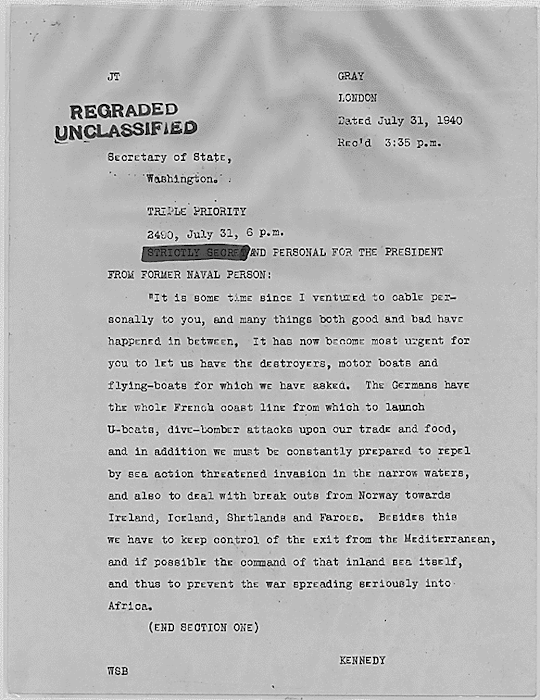
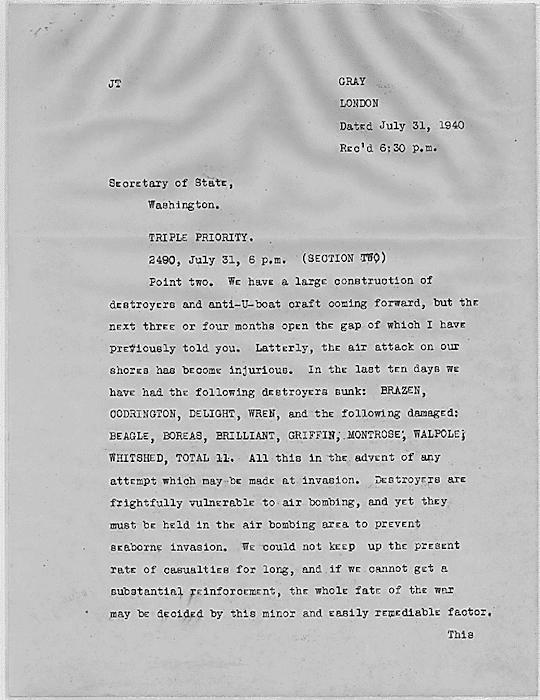
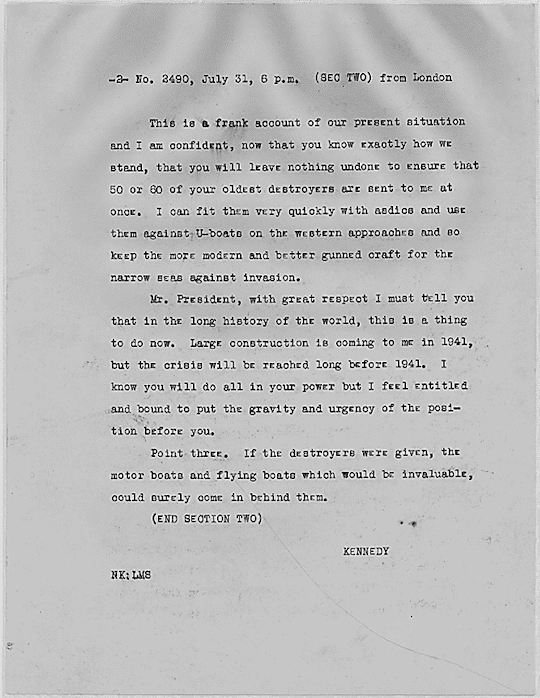
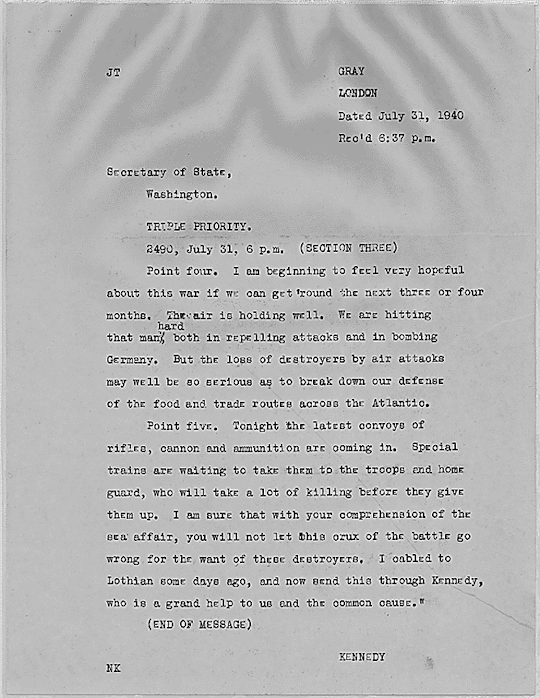
(via todaysdocument)
68 notes
·
View notes
Photo
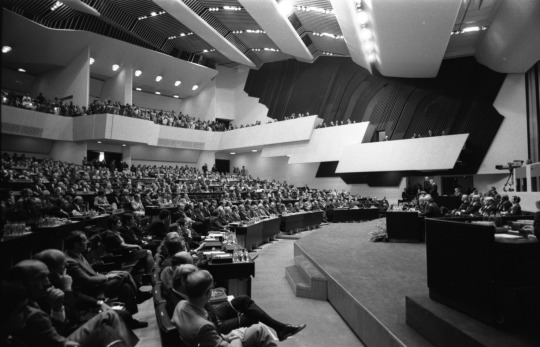
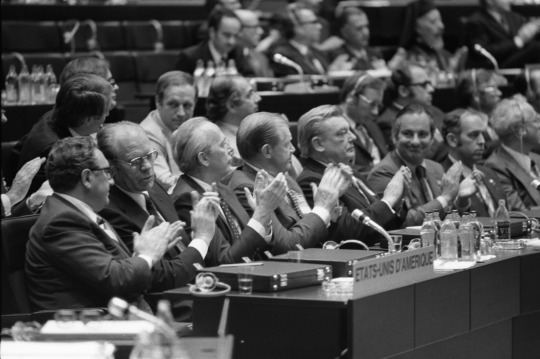
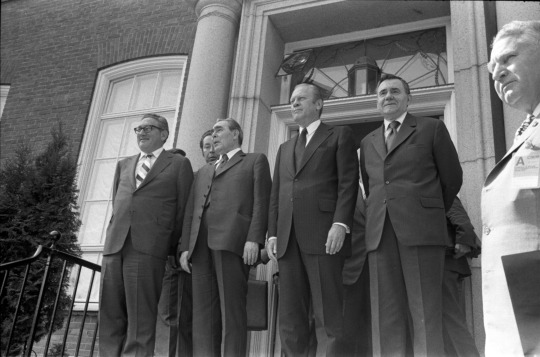
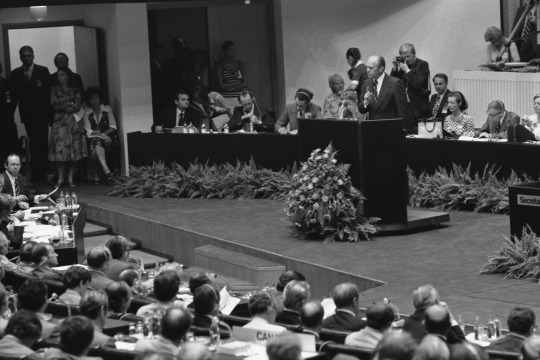
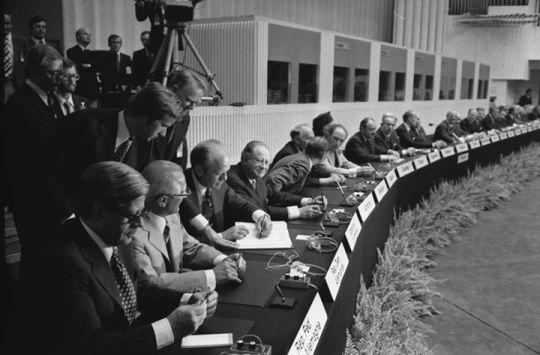
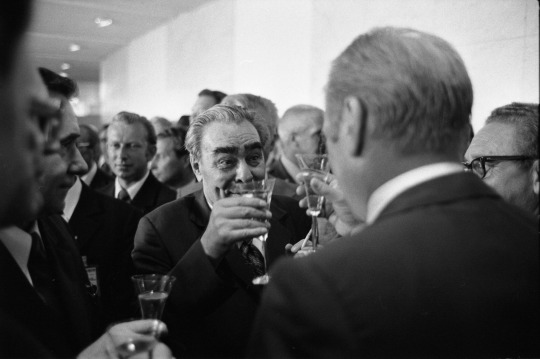
President Ford traveled to Helsinki, Finland, to participate in the Conference on Security and Cooperation in Europe (CSCE) 40 years ago this week. He joined the leaders of 34 other nations in signing the Final Act on August 1, 1975, in one of the major foreign policy events of his administration.
President Ford saw the trip to the CSCE as an opportunity to get a commitment from leaders of Communist controlled countries to permit greater freedom of movement for people and freer flow of information. It also allowed him to meet with Soviet General Secretary Leonid Brezhnev and follow up with the arms control negotiations from their previous summit at Vladivostok.
Not everyone agreed with his decision to participate. The Wall Street Journal implored “Jerry, don’t go,” and several prominent politicians including Ronald Reagan stated their opposition. Americans of Eastern European descent also registered their disapproval, scheduling a vigil in protest of the administration’s policy. One sampling of White House mail on the Helsinki agreement measured 558 letters against it versus 32 in favor.
Before signing the Final Act all of the heads of state addressed the gathering. “Peace is not a piece of paper,” President Ford said in his remarks. “But lasting peace is at least possible today because we have learned from the experiences of the last 30 years that peace is a process requiring mutual restraint and practical arrangements. This Conference is a part of that process – a challenge, not a conclusion. We face unresolved problems of military security in Europe; we face them with very real differences in values and in aims. But if we deal with them with careful preparation, if we focus on concrete issues, if we maintain forward movement, we have the right to expect real progress.”
After the CSCE President Ford still faced negative reactions from those who viewed the Helsinki Accords as selling out Eastern Europe to the Soviet Union. Nevertheless, the agreement served as an important stepping stone in easing Cold War tensions and the Act’s human rights provisions helped Eastern Europeans seeking an end to the communist regimes in their countries.
Images: Delegates seated in Finlandia Hall at the opening of the CSCE, 7/30/1975; President Ford, Henry Kissinger, and the U.S. delegation at the opening of the CSCE in Finlandia Hall, 7/30/1975; Henry Kissinger, Leonid Brezhnev, President Ford, and Andrei Gromyko outside the American Embassy, 7/30/1975; President Ford addressing delegates during the Plenary Session of the CSCE in Finlandia Hall, 8/1/1975; President Ford signs the Final Act of the Conference on Security and Cooperation in Europe as it is passed among European leaders for signature in Finlandia Hall, 8/1/1975; President Ford and General Secretary Brezhnev raise their glasses in a toast following the signing of the Final Act, 8/1/1975.
84 notes
·
View notes
Link
The science of selfies #infografia #infographic #socialmedia -
1 note
·
View note
Link
Darby JAMPIJINPA ROSS / Pamapardu Jukurrpa (Flying Ant Dreaming) 61 x 152cm -
0 notes
Photo
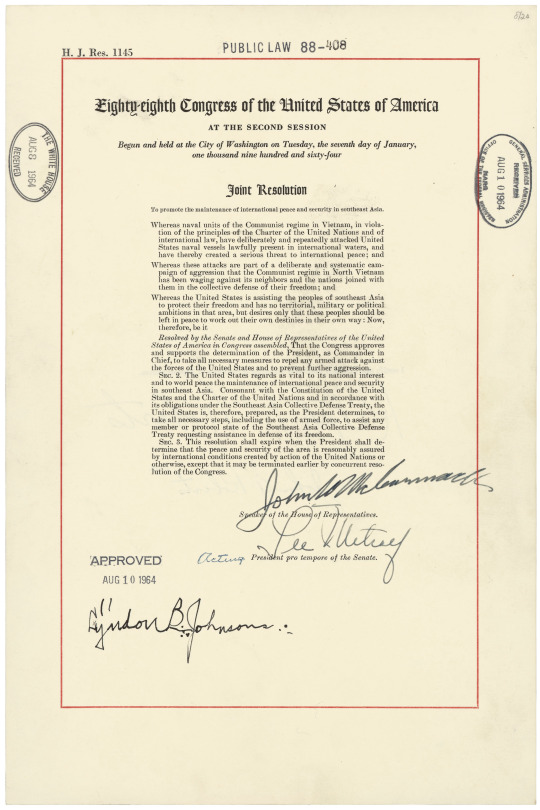
The Fiftieth Anniversary of the Gulf of Tonkin Resolultion:
Joint Resolution for the Maintenance of International Peace and Security in Southeast Asia, (Public Law 88-408, House Joint Resolution 1145), also known as the Gulf of Tonkin Resolution, August 10, 1964
National Archives, General Records of the U.S. Government
In a late-night televised address on August 4, 1964, President Johnson announced that he had ordered retaliatory air strikes on the North Vietnamese in response to reports of their attacks earlier on U.S. Navy ships in the Gulf of Tonkin.
He then asked Congress to pass a resolution stressing that “our Government is united in its determination to take all necessary measures in support of freedom and in defense of peace in southeast Asia.”
The resolution stated that “Congress approves and supports the determination of the President, as Commander in Chief, to take all necessary measures to repeal any armed attack against the forces of the United States and to prevent further aggression” in Southeast Asia, thereby providing a legal foundation for President Johnson’s escalation of the war.
The Gulf of Tonkin Resolution passed Congress quickly on August 7, with only two dissenting votes in the Senate. President Johnson signed the resolution on August 10, 1964.
Read more at Prologue: Pieces of History » On exhibit: Gulf of Tonkin Resolution
(The original Gulf of Tonkin Resolution was on display at the National Archives Building from July 15 to August 7, 2014. )
62 notes
·
View notes
Photo
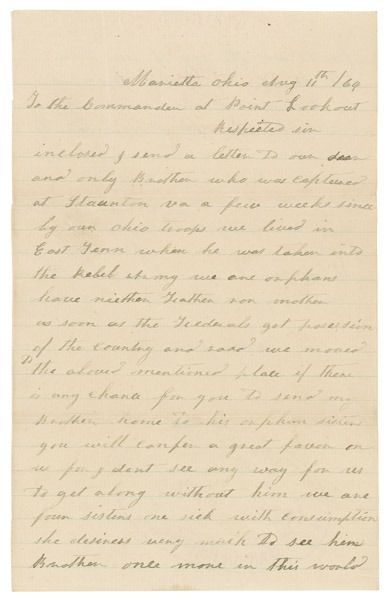
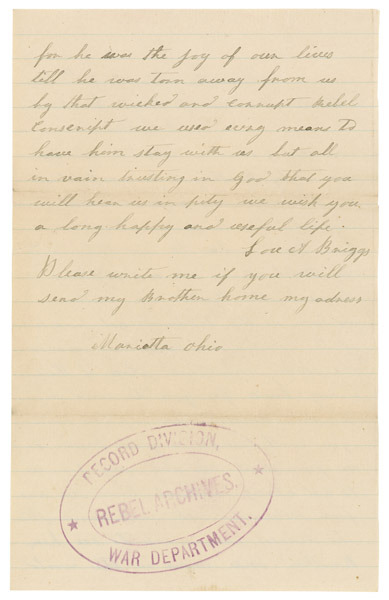
Seeking a brother’s release
In this letter to the Union commander of the prisoner-of-war camp at Point Lookout, Maryland, one of four sisters asks the commander to release their brother. Writing on August 11, 1864, from Marietta, Ohio, Lou A. Briggs asks the commander to have pity as they were orphans and cannot “get along without him.” One sister was sick with consumption, she wrote, and “desires very much to see her brother once more in this world.”
Letter from Lou A. Briggs to the Commander of Point Lookout Military Prison Regarding Rufus Briggs, 08/11/1864
From the series Personal Letters to Confederate Prisoners at Point Lookout, Maryland, 1889 - 1904
via DocsTeach
70 notes
·
View notes
Link
0 notes
Photo
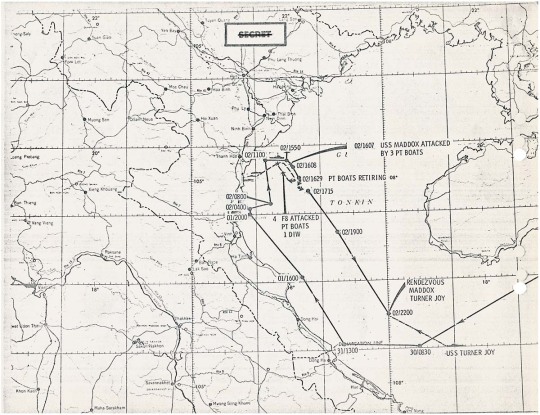
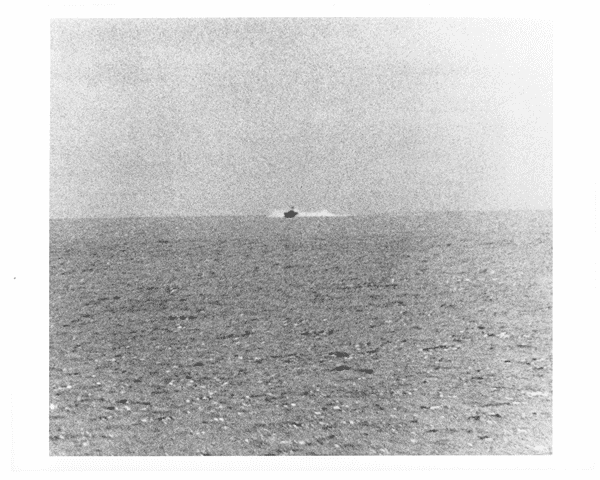
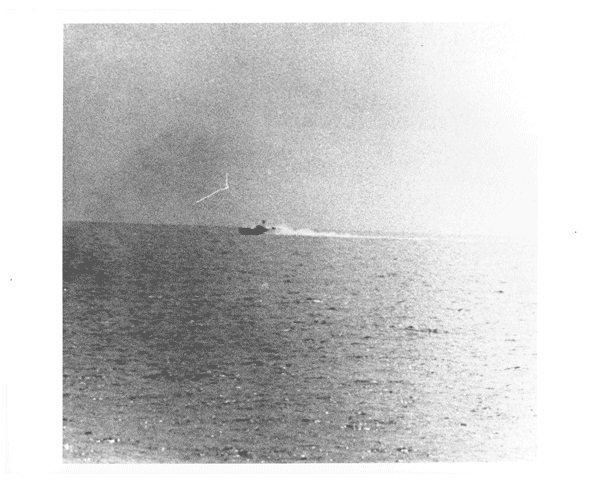
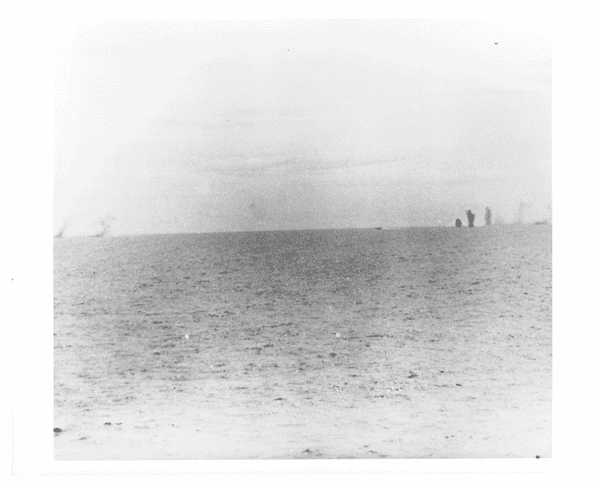
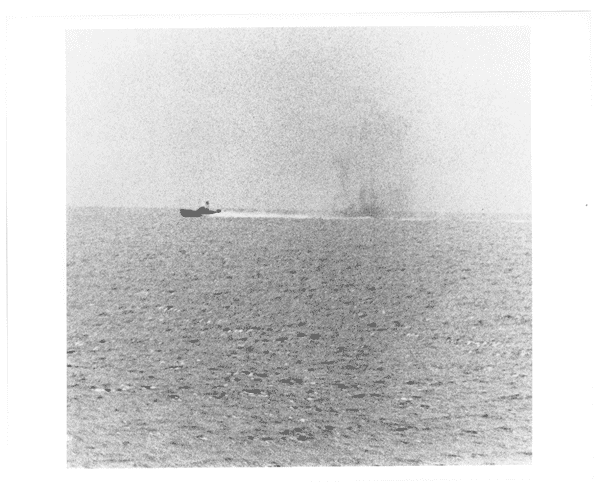
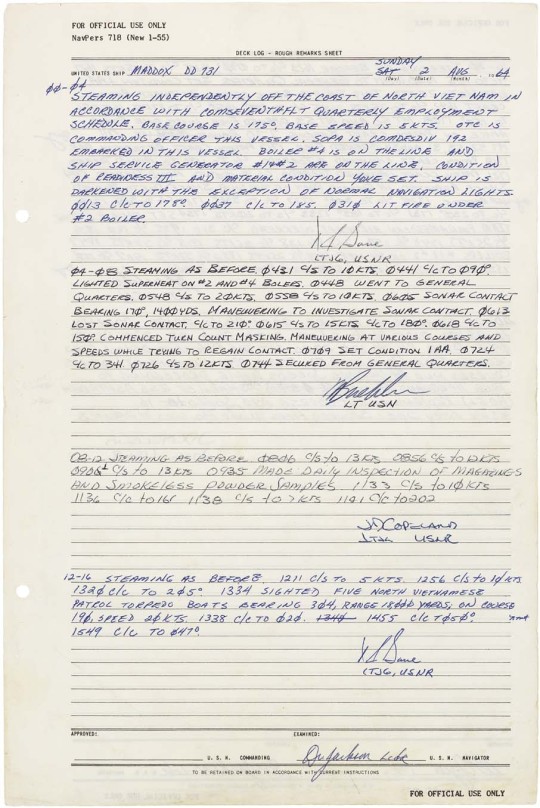
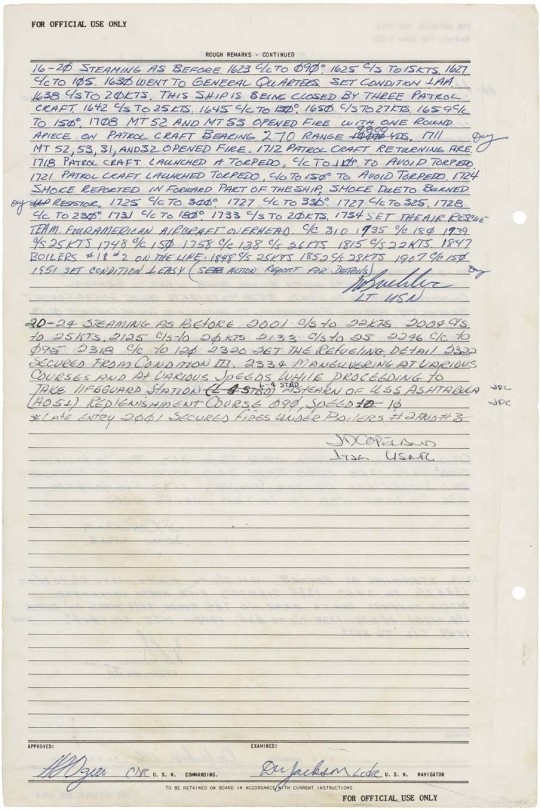
The Fiftieth Anniversary of the Gulf of Tonkin Incident:
Fifty years ago on August 2, 1964, three North Vietnamese patrol boats attacked the USS Maddox in the Gulf of Tonkin. The Maddox and aircraft from the USS Ticonderoga damaged all three hostile boats, almost sinking one. Following reports of a second alleged incident two days later, Congress passed the Gulf of Tonkin Resolution, which gave President Lyndon B. Johnson advance approval to respond to military aggression in Southeast Asia without congressional consultation, and leading to an escalation of U.S. involvement in the Vietnam War.
Map of the U.S.S. Maddox Incident, 08/02/1964 - 08/07/1964
Photographs of North Vietnamese Torpedo Boat Approaching the U.S.S. Maddox During the Gulf of Tonkin Incident
Deck Log of the U.S.S. Maddox, 08/02/1964
Read more at Prologue: Pieces of History » On exhibit: Gulf of Tonkin Resolution
The original Gulf of Tonkin Resolution is on display in the East Rotunda Gallery of the National Archives Building from July 15 to August 7, 2014.
178 notes
·
View notes
Photo

On August 3, 1789, President George Washington sent to the Senate a list of nominees to be port collectors. The name of each nominee appear next to each position with a note on the outcome of the Senate’s vote. “Aye” is written next to each name but Benjamin Fishbourn. Fishbourn was the first presidential nominee to be rejected by the Senate, and the event marked the beginning of the custom of senatorial courtesy—a tradition which continues today.
This tradition holds that the Senate may reject a nominee who is not supported by the nominee’s home state senators. It encourages the President to engage the Senate in the “advice” part of the nomination process, as well as the “consent” part.
Nomination of Port Collectors, including the nomination of Benjamin Fishbourn, 8/3/1789, SEN1B-A1, Records of the U.S. Senate
160 notes
·
View notes
Photo
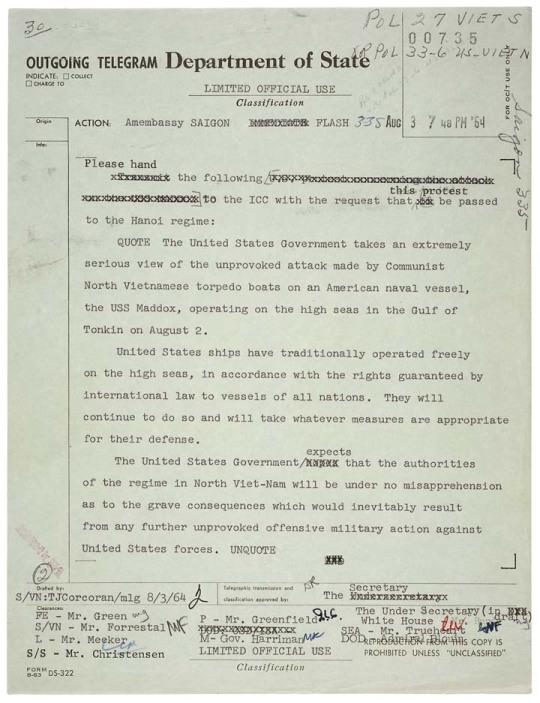
The Fiftieth Anniversary of the Gulf of Tonkin Incident:
Telegram to the United States Embassy in Saigon, 08/03/1964
This message instructed the American Embassy in Saigon to hand a note of protest to the International Control Commission (ICC) concerning the North Vietnamese attack on the USS Maddox in the Gulf of Tonkin. The ICC was requested to pass the protest to the Hanoi regime.
Fifty years ago the USS Maddox was attacked by 3 North Vietnamese patrol boats on August 2, 1964. The incident would ultimately lead to the Gulf of Tonkin Resolution, which gave President Lyndon B. Johnson advance approval to respond to military aggression in Southeast Asia without congressional consultation, and leading to an escalation of U.S. involvement in the Vietnam War.
Read more at Prologue: Pieces of History » On exhibit: Gulf of Tonkin Resolution
The original Gulf of Tonkin Resolution is on display in the East Rotunda Gallery of the National Archives Building from July 15 to August 7, 2014.
62 notes
·
View notes